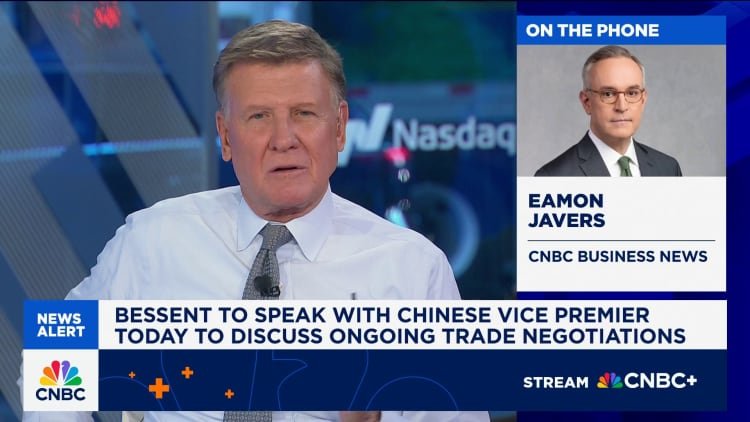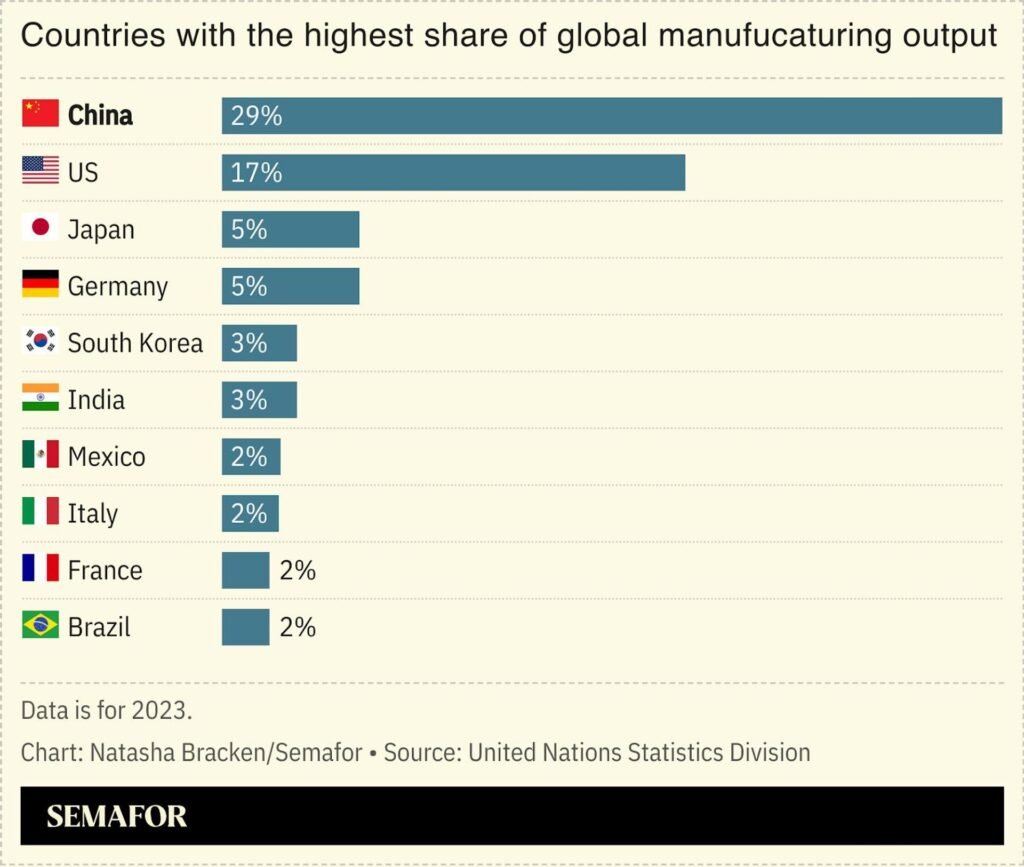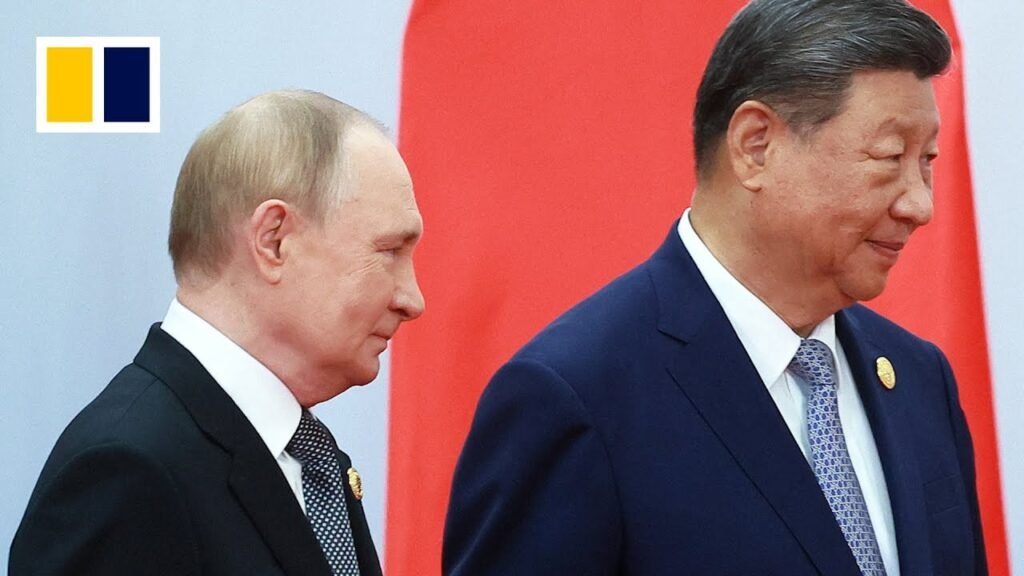(Bloomberg) — US Treasury Secretary Scott Bessent dangled the possibility of extending a pause of import duties on Chinese goods for longer than three months if China halts its plan for strict new export controls on rare-earth elements.
The US and China have agreed to a series of 90-day truces since earlier this year, with the next deadline looming in November.
Most Read from Bloomberg
“Is it possible that we could go to a longer roll in return? Perhaps. But all that’s going to be negotiated in the coming weeks,” Bessent said during a press conference in Washington.
After months of tentative stability in the US-China relationship, tensions flared in recent weeks after Washington broadened some tech restrictions and proposed levies on Chinese ships entering US ports. China responded with parallel moves and outlined tighter export controls on rare earths and other critical materials.
Economists have described the latest moves by both sides as attempts to stack up bargaining chips ahead of a likely leaders’ meeting this month on the sidelines of the Asia-Pacific Economic Cooperation summit in South Korea. Meanwhile, a truce in a tariff fight that at one point saw US levies surge to as high as 145% is set to expire Nov. 10, unless extended.
When asked by a reporter if the world’s two largest economies are in for a sustained trade war if they cannot reach a trade deal, President Donald Trump replied: “Well, you’re in one now.”
“We have a 100% tariff. If we didn’t have tariffs, we would be exposed as being a nothing,” Trump said Wednesday.
US equities extended gains after Bessent’s comments, while Trump’s remarks came after trading closed in New York. In early Asia trade Thursday, equity-index futures pointed to gains in Shanghai and Tokyo, while those for Hong Kong fell.
US Trade Representative Jamieson Greer cast doubt that Beijing would go ahead with its plan, which he said would choke off trade in a wide variety of consumer products that contain even a trace of rare earths.
“The scope and the scale is just unimaginable, and it cannot be implemented,” Greer said.
In the meantime, Bessent predicted a coordinated response to China’s move from the US and several allies.
“We’re going to have a fulsome, group response to this, because bureaucrats in China cannot manage the supply chain or the manufacturing process for the rest of the world,” Bessent said earlier Wednesday at a CNBC-hosted forum in Washington.
Coordinated Response
Pointing out that “all my counterparts” are in Washington for the annual gathering of the International Monetary Fund and World Bank this week, he said, “We’re going to be speaking with our European allies, with Australia, with Canada, with India and the Asian democracies.”
China’s new rules, announced last week, require overseas firms to obtain Chinese government approval before exporting products containing even trace amounts of certain rare earths that originated in China.
Trump responded by threatening to impose an additional 100% tariff on Chinese goods by Nov. 1. He floated the idea of scrapping a planned meeting with President Xi Jinping and warned the US could cut off trade in cooking oil, a key input in biofuels.
The Treasury chief said that as far as he’s aware, Trump “is a go” on meeting Xi later this month in South Korea. Bessent said there’s a “very good chance” that he travels to Asia before Trump and meets with his Chinese counterpart, Vice Premier He Lifeng.
Asia Trip
Bessent said he expected trade announcements to be made during Trump’s Asia tour. The president is expected to attend a summit with the Association of Southeast Asian Nations in Malaysia before going on to Japan and South Korea, which will be hosting the annual APEC leaders meeting.
The US is “about to finish up” negotiations with South Korea, Bessent added. Those talks have lately revolved around the contours of a giant investment program. US-Canada talks are “back on track,” Bessent also said. He also indicated progress with India.
Bessent dismissed the notion that a slide in the stock market would force the Trump administration into a negotiating position with Beijing, saying that what spurs such talks is instead the economic interest of the nation. The US won’t negotiate with China “because the stock market is going down,” he said.
He also rejected the idea that the rising price of gold reflects some fundamental concern with regard to the dollar. He flagged that US interest rates have come down relative to other economies, and said with regard to the euro that it “should be strong,” given how currency theory would suggest exchange-rate appreciation when fiscal expansion is underway.
Explainer: How the US-China Trade War Has Flared Up Again
‘Unhinged’ Official
Bessent also on Wednesday singled out a Chinese vice commerce minister, Li Chenggang, for particular criticism, referencing comments he made during an August visit to Washington. He said Li had shown up “uninvited.”
“Perhaps the vice minister who showed up here with very incendiary language on August 28 has gone rogue,” Bessent said during the press conference at Treasury. “This individual was very disrespectful,” he said, after earlier calling him “unhinged” in the CNBC event.
Li had warned China would “cause global chaos” if the US went ahead with plans for port fees for Chinese ships, Bessent said. “Maybe he thinks he’s a wolf warrior,” he said, referring to a term used for aggressive Chinese diplomats.
Bessent also said that China had initially ascribed a slowdown in the supply of rare earth magnets to a holiday — an argument that suggested “they can’t be trusted with the global supply chain.”
“If China wants to be an unreliable partner to the world, then the world will have to decouple,” he said. “The world does not want to decouple,” he said. “We want to de-risk. But signals like this are signs of decoupling, which we don’t believe China wants.”
–With assistance from Catherine Lucey, Phil Kuntz, Lauren Dezenski, Derek Wallbank and Christopher Anstey.
Most Read from Bloomberg Businessweek
©2025 Bloomberg L.P.






